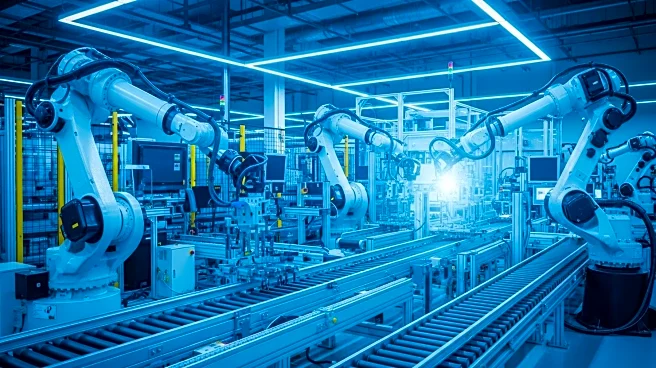What is the story about?
What's Happening?
Amazon Business, a segment of the e-commerce giant Amazon, is seeking deeper integration with manufacturing operations as it enters its second decade. The business-to-business segment has grown significantly, serving over 8 million customers globally and generating more than $35 billion in sales. Stephanie Lang, director of Amazon Business, highlighted the evolution from a business purchasing marketplace to a comprehensive solution tailored for manufacturers and industrial operations. The segment has introduced new technological features and programs, such as Business Prime Rewards, to streamline purchasing processes and improve visibility into spending. Amazon Business has expanded its industrial product selection and introduced AI-powered analytics to help manufacturing operations identify cost efficiencies. The company is focusing on enhancing inventory management tools and developing solutions to tackle supply chain challenges.
Why It's Important?
The expansion of Amazon Business into manufacturing operations signifies a shift in the e-commerce landscape, where traditional business models are increasingly integrating technology to optimize operations. This move could potentially disrupt the industrial supply chain by offering manufacturers more efficient purchasing solutions and cost-saving opportunities. The introduction of AI-powered tools and enhanced inventory management systems may lead to increased operational resilience for manufacturing organizations. As Amazon Business continues to grow, it could pose a competitive challenge to traditional B2B distributors, prompting them to innovate and adapt to the changing market dynamics. The broader impact on the U.S. economy could include increased efficiency in manufacturing processes and potential cost reductions for industrial operations.
What's Next?
Amazon Business plans to continue its focus on deeper integration with manufacturing operations, aiming to enhance inventory management tools and predictive analytics. The company is working on solutions to address supply chain challenges, which are critical for manufacturing leaders. As Amazon Business expands its capabilities, it may introduce new services tailored to the needs of industrial organizations. The ongoing evolution of Amazon Business could lead to further innovations in the B2B sector, potentially influencing how manufacturers source and manage their operations. Stakeholders in the manufacturing industry may need to adapt to these changes to maintain competitiveness and operational efficiency.
Beyond the Headlines
The deeper integration of Amazon Business with manufacturing operations raises questions about the ethical implications of AI-powered analytics in business decision-making. As companies increasingly rely on technology to optimize operations, there may be concerns about data privacy and the potential for algorithmic bias. Additionally, the shift towards more efficient supply chain solutions could lead to changes in employment patterns within the manufacturing sector, as automation and AI tools become more prevalent. The long-term impact on industrial operations may include a reevaluation of traditional business practices and a greater emphasis on technological innovation.















